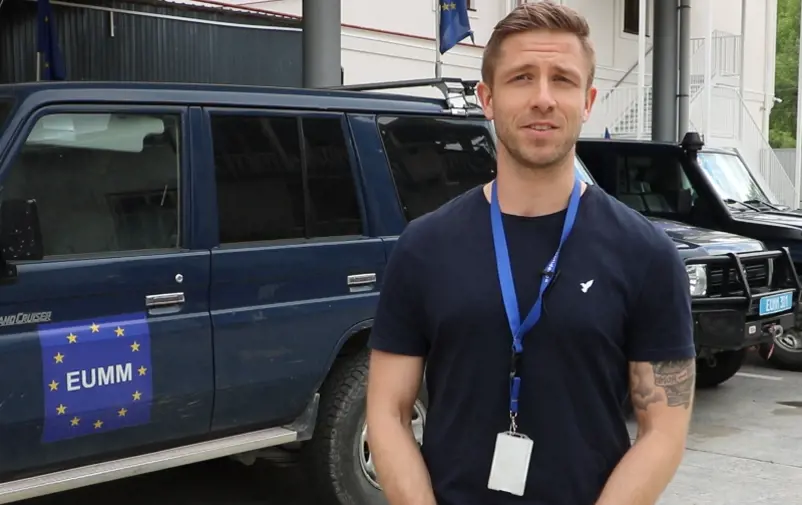
Tobias Priadi-Sörensen is one of several Swedes seconded by FBA to the European Union Monitoring Mission in Georgia.
The objective of Swedish development aid is to create opportunities for people living in poverty and under oppression to improve their living conditions. One billion people are currently living in extreme poverty worldwide, and in year 2030 the majority of the poor are expected to live in conflict-affected countries. Armed conflict is one of the biggest obstacles to both social, economic and democratic development.
Swedish development cooperation is governed by strategies decided by the Swedish government. The strategies apply to a country, a region, or to a thematic area and apply globally.
Traditionally, mainly the Swedish International Development Cooperation Agency (Sida) has been tasked with working with the strategies.
But in 2015 FBA was, for the first time, commissioned to contribute to one of the strategies – the strategy for Sweden’s development cooperation with the Democratic Republic of Congo. Since then, FBA’s role in Sweden’s development aid has grown, and now includes several long-term assignments to contribute to peacebuilding in countries affected by armed conflict, or transitioning from war to peace.
As of today, FBA is tasked with working with ten countries and three region within the realm of Sweden’s development cooperation:
Afghanistan
Africa
Colombia
Democratic Republic of Congo
Eastern Europe
Iraq
Liberia
Mali (concluded at the turn of the year 2024-2025)
Myanmar (concluded at the turn of the year 2024-2025)
Palestine (concluded at the turn of the year 2024-2025)
Somalia
Ukraine
Western Balkans
In addition, we are commissioned to contribute to Sweden’s thematic global strategies for sustainable peace, international civilian crisis management, and human rights, democracy and the rule of law. This is reflected in every area of our work.
Also underlying all our work is Agenda 2030, with 17 global sustainable development goals adopted by the world’s leaders at a UN summit. Goal 16, on promoting just, peaceful and inclusive societies, is especially in line with the mission of FBA. Goal 5, on achieving gender equality, is of great importance to our work as well.
FBA’s activities are designed to address needs identified in comprehensive needs assessments. Planning and design is carried out in close collaboration with our partners, including national and local authorities and civil society organizations in the countries where we work. We also cooperate with international organizations such as the UN, EU, OSCE and AU.
Our international activities are centered around our areas of expertise. Our own personnel play an active part in carrying out activities and monitoring their results. For instance, we provide expert advice and tailored trainings for key actors in the countries where we work, on issues such as reintegration of ex-combatants, dialogue and peace mediation, leadership in peace operations, or inclusive peacebuilding. In order to build sustainable peace, various groups in a country need to be included, such as women, youth and other often marginalized groups.
We also support institution-building, democratic development and respect for the rule of law. Conflict-affected countries are often weak states with ill-functioning institutions and low public trust in state authorities. The national security sector, with the police and the military, is often particularly mistrusted. Reforms may be needed in order for people to feel safe and regain trust in the security sector.
All our work is aimed at preventing conflicts, and strengthening the capacity of states to manage conflicts peacefully if they arise.
MORE FROM HOME
Since 2008, the European Union Monitoring Mission EUMM has been a constant presence in Georgia. With the mandate to monitor the ceasefire and prevent the conflict between Georgia and Russia from reigniting, the mission works to promote stability and security – and to help ensure a safer daily life for the people affected.
2025-08-26 12:45FBA has both increased and adapted its work in Ukraine in the wake of Russia's invasion.
FBA in UkraineKlara Grenhagen works as a specialist at FBA's Africa unit with a focus on dialogue, reconciliation and peace processes.
More about our expertsFBA is part of Sweden’s development aid within the area of peace and security
Read more about the countries where we work